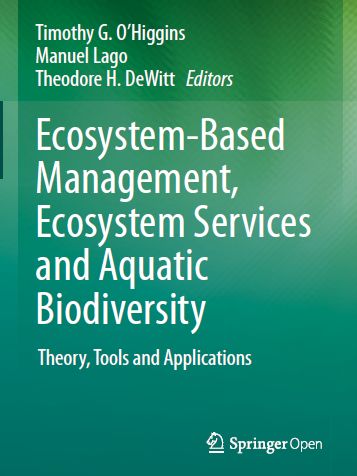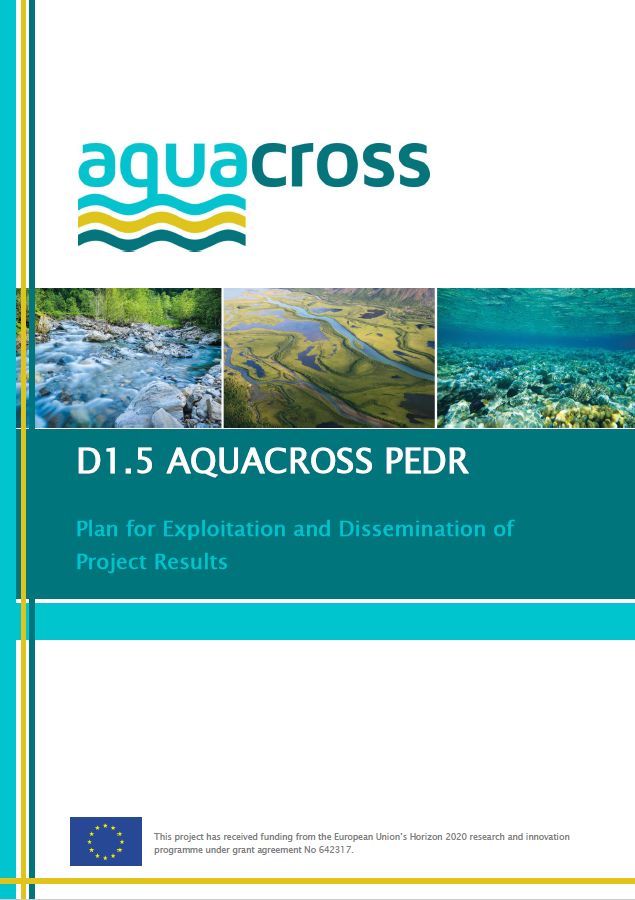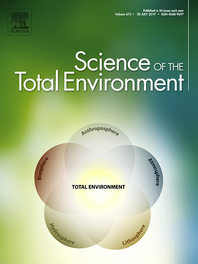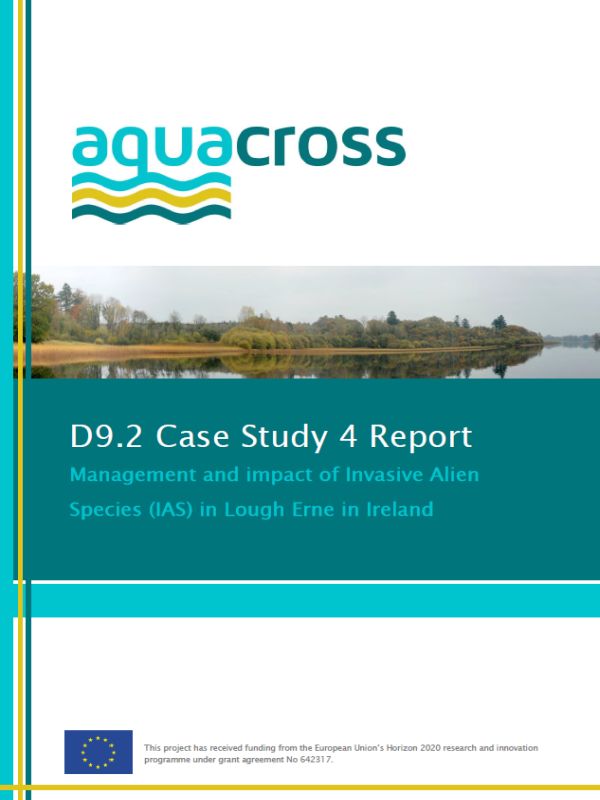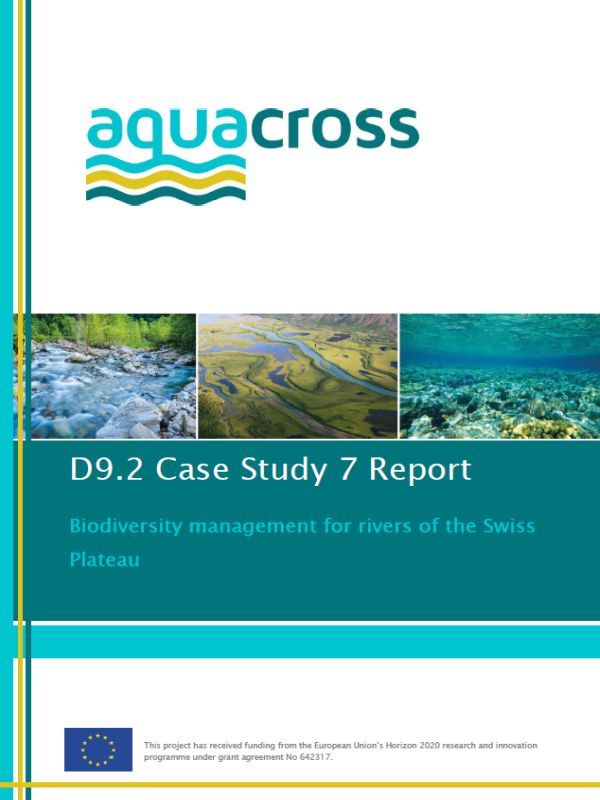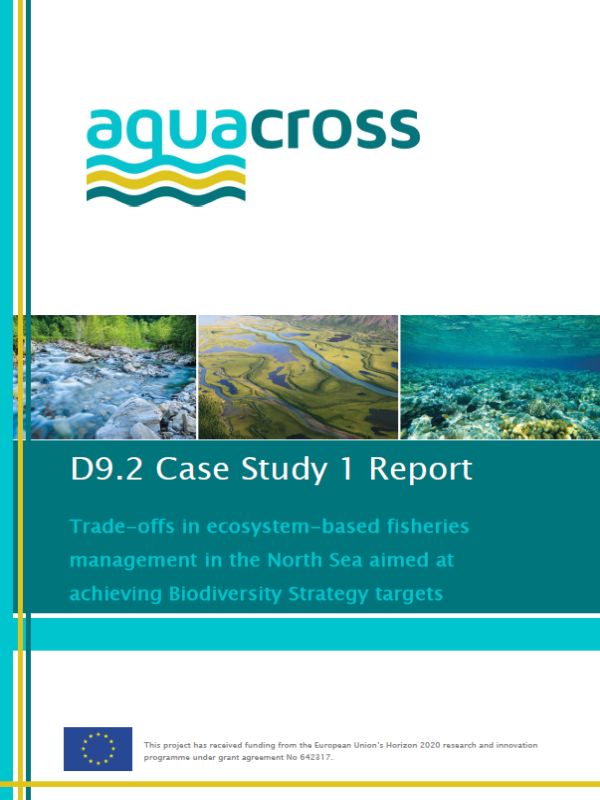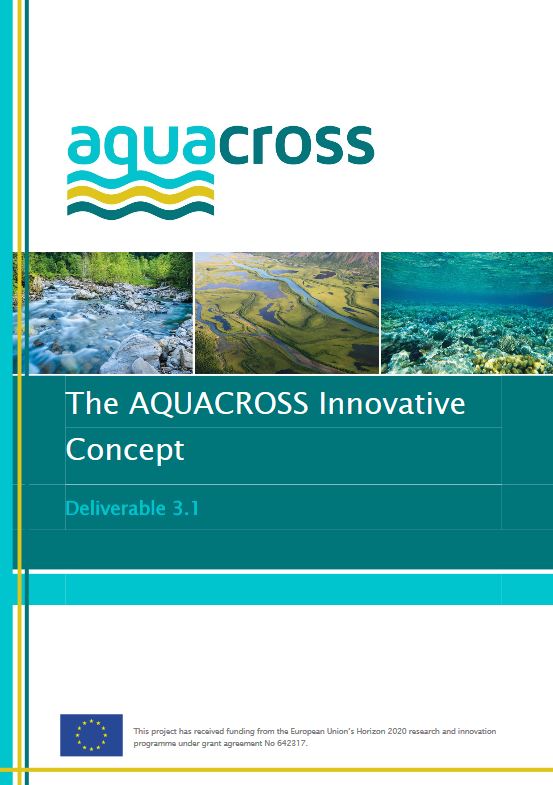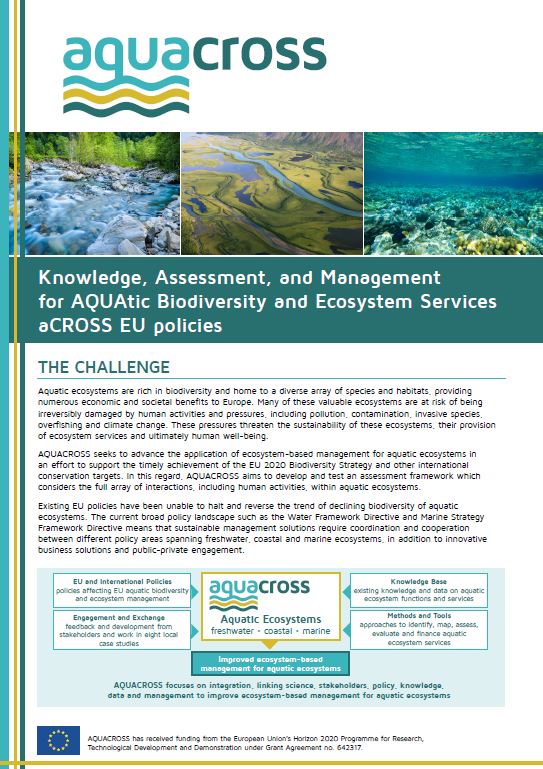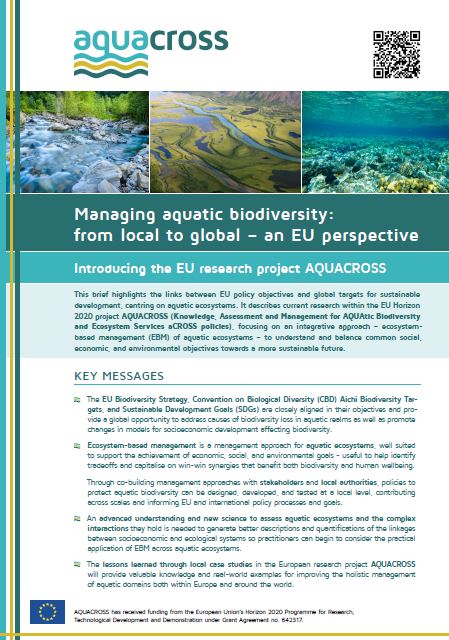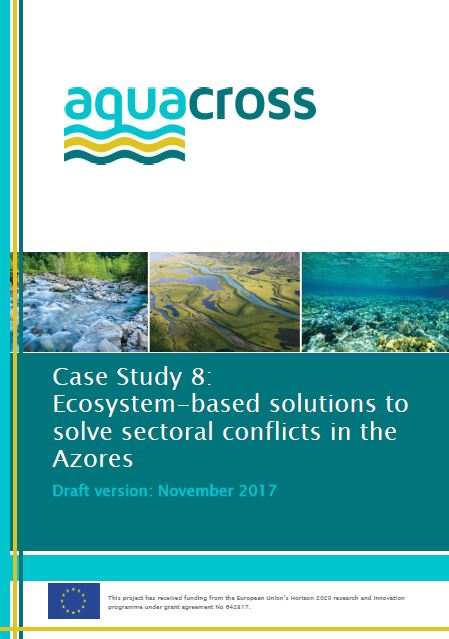Knowledge, Assessment, and Management for Aquatic Biodiversity and Ecosystem Services Across EU Policies (AQUACROSS)
- Project
- Research Program
- Duration
-
-
Knowledge, Assessment, and Management for AQUAtic Biodiversity and Ecosystem Services aCROSS EU policies (AQUACROSS) aims to support EU efforts to protect aquatic biodiversity and ensure the provision of aquatic ecosystem services. Funded by Europe's Horizon 2020 research programme, AQUACROSS seeks to advance knowledge and application of ecosystem-based management (EBM) for aquatic ecosystems to support the timely achievement of the EU 2020 Biodiversity Strategy targets.
The AQUACROSS concept
To do this, AQUACROSS considers the EU policy framework for aquatic ecosystems and builds on knowledge stemming from different sources to develop innovative management tools, concepts and business models for aquatic ecosystems.
The AQUACROSS approach is built around four pillars of work and eight case studies:
- Pillar 1: Real-world testing—the project will ensure stakeholder engagement, knowledge exchange and social learning to achieve practical policy solutions and end-user uptake. Representatives from science, policy, business and case study areas will compose the project’s Science-Policy-Business Think Tank, which acts as an external advisory board to help steer project activities and check the accuracy and relevancy of its results.
- Pillar 2: Giving direction—it is important to understand the current political setting in order to facilitate policy coordination across aquatic ecosystems. Work under this pillar will assess existing political processes and legislation to identify synergies and barriers to aquatic management. AQUACROSS will develop a conceptual Assessment Framework (AF) to assess aquatic ecosystems in line with integrated management, taking into account concepts of resilience and uncertainty.
- Pillar 3: Increasing scientific knowledge—work under this pillar will develop and test protocols and guidance materials for testing the AQUACROSS AF in the case studies. This work includes identifying and assessing drivers and pressures of aquatic ecosystems; understanding causalities between biodiversity, ecosystem functions and services; ensuring exchange of data, information and research results through the Information Platform; and forecasting biodiversity and ecosystem service provision.
- Pillar 4: Improving management— building on the work undertaken in the previous pillars, this pillar aims to develop concepts, practices and tools for better implementation of EBM. This includes identifying and understanding the linkages between aquatic ecosystems and human well-being and identifying innovative management responses for aquatic ecosystems.
Ecologic Institute's Role in AQUACROSS
Ecologic Institute is responsible for the overall project coordination. Furthermore, it leads work to analyze policies affecting the achievement of EU and international biodiversity objectives. Overall, this research will lead to targeted policy recommendations to apply EBM to meet the objectives of the EU Biodiversity Strategy and other environmental policies for the protection of aquatic ecosystems. Additionally, Ecologic will lead an EU overseas case study in the Azores, researching ecosystem-based solutions to solve sectoral conflicts towards sustainable development.
Ecologic Institute will also contribute in creating the AQUACROSS AF, as well as testing its application in identifying and assessing drivers and pressures of aquatic ecosystems and their complex inter-linkages within the case studies. Ecologic will also contribute to identifying, developing and assessing innovative management responses for aquatic ecosystems within the EU as well as the case studies.
Background of the AQUACROSS project
Aquatic ecosystems are rich in biodiversity and home to a diverse array of species and habitats, providing numerous economic and social benefits to Europe. Many of these valuable ecosystems are currently at significant risk of being irreversibly damaged by human activities and by the numerous pressures these create, including pollution, contamination, invasive species, overfishing and climate change.
Existing policies, such as the Water Framework Directive (WFD), Marine Strategy Framework Directive (MSFD), and the EU 2020 Biodiversity Strategy, have been unable to halt and reverse the trend of declining biodiversity of aquatic ecosystems.





